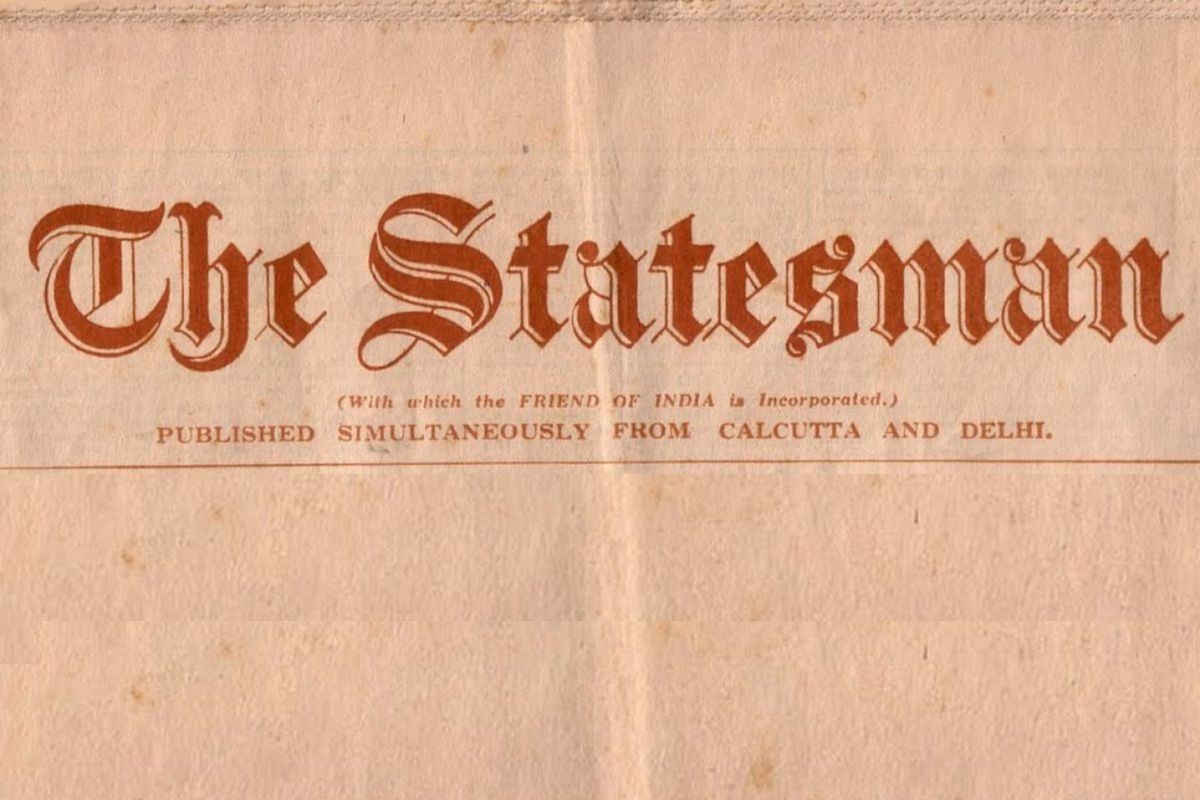Leading women personalities on what it takes to be a woman!
On International Women's Day, The Statesman talked to esteemed women personalities from various fields on what it takes to be a woman in our country and what empowers them.
On this day a century ago, these were some of the news items The Statesman readers got to read about India and the world.

OCCASIONAL NOTE
The two Bills which have resulted from the sittings of the National Industrial Conference fix the maximum hours of work, exclusive of meal times, at fortyeight but they leave the fixation of Mr. Lloyd George’s “living wage” to commissioners who will have regard to the cost of living in various districts. This was the principle adopted in the settlement applied to the coal trade before the war and is much to be preferred to the arbitrary fixation of a sum which may mean anything according to the time and place at which it is paid. The exceptions in the case of the forty-eight hour week are fairly numerous and include that much afflicted class, domestic servants, as well as brain workers and those engaged in a responsible or confidential capacity. A good deal might be said in favour of giving the brain worker an even shorter working week than forty-eight hours and doubtless the responsible servant with the cares of a great business or department constantly on his shoulders would be glad to surrender his responsibility to another for sixteen hours out of the twenty-four. Unfortunately for those classes they are neither vocal nor organised and the manual worker is to receive the plums this time.
Advertisement
INFLUENZA AT OORGAUM
Advertisement
OORGAUM, AUG 22
Influenza reappeared in sporadic form on the gold field about the end of July. Up to date about 270 cases have been dealt with in three Government hospitals, there being only six deaths among them. The disease at present is of mild type, pneumonic cases being few, diarrhoea, however, was present in several cases. Practically the whole mining area is affected, excepting Balaghat which, being isolated from other camps, has so far been free from the disease. The routine treatment adopted is cinnamon. As was the case last year females are the principal victims to the disease. A conference of medical officers was held yesterday, to discuss measures for the accommodation and treatment of patients. Should the disease become epidemic it was decided to erect sheds in the compound of the civil hospital for accommodation of all women and children patients. Separate sheds will be erected for convalescents.
BOMBAY NEIGHBOURS SQUABBLE
BOMBAY, AUG 22
At the High Court today, before Justice Shah and Bayward, Sir Chimanlal Setalvad appeared on behalf of Sir Cowasji Jehangir, Bart., and applied for the admission of an application for revision of the order passed by the Chief Presidency Magistrate against Sir Cowasji in regard to an application of Major Porter. Amongst the grounds submitted were that the Magistrate had no jurisdiction, that there was no emergency since the alleged nuisances had existed for over forty years and the Major had tolerated them for over a year, that there was no evidence that a breach of the peace was likely, and that the Major had stated that he did not intend going to a civil court. Their Lordships granted a rule to show cause why the order should not be set aside.
BOMBAY S WATER FAMINE
Bombay is at present passing through great hardship on account of the water famine consequent on the complete cutting off of the Tansa Water Lake supply. Temporary pipes are being laid with all possible speed across the collapsed portion of the aqueduct. The work, however, will not be finished before next Sunday. In the meantime the limited quantity available from the two smaller lakes, which is less than one-third of the normal supply of forty-five million gallons daily, is only just sufficient for the barest necessities. During the last four days copious rain has helped to relieve the situation somewhat but there has been no rain today. The acuteness of the situation is particularly visible among the middle classes living in many storeyed buildings. There is a general apprehension of a cholera and influenza epidemic. People who could get away from the city for a few days are doing so.
SILESIAN SITUATION
The Supreme Council has received reports showing that the situation in Upper Silesia is very grave, the miners in many parts being in a state of armed insurrection against the German authorities. The strikers have seized the towns of Kallowitz, Press and Jeslin. The French military representative in Silesia suggests that troops under a French general should be despatched. The Polish Government concurs. The latest news from Berlin claims that the situation is improving, and that work is being partly resumed.
Advertisement